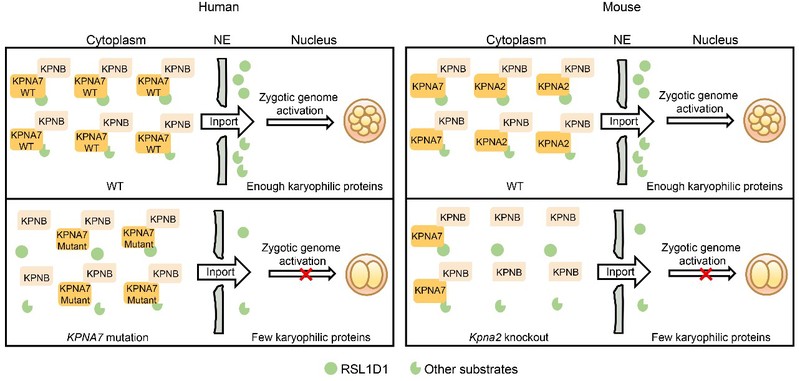Preimplantation embryo arrest (PREMBA) is a common cause of female infertility and recurrent failure of assisted reproductive technology. However, the genetic basis of PREMBA is largely unrevealed. Here, using whole exome sequencing data from 606 PREMBA women compared to 2,813 controls, we performed a population and gene-based burden test and identified a candidate gene karyopherin alpha 7 (KPNA7). In vitro studies showed that identified sequence variants reduced KPNA7 protein level, impaired KPNA7 binding capacity to its substrate RSL1D1, and affected KPNA7 nuclear transport activity. Comparison between humans and mice suggested that mouse KPNA2, rather than mouse KPNA7, acts as an essential karyopherin in embryonic development. Kpna2-/- female mice showed embryo arrest due to zygotic genome activation defects, thus recapitulating the phenotype of human PREMBA. Besides, female mice with an oocyte-specific knockout of Rsl1d1 recapitulated the phenotype of Kpna2-/- mice, demonstrating the vital role of substrate RSL1D1. Finally, cRNA microinjection of human KPNA7, but not mouse Kpna7, could rescue the embryo arrest phenotype in Kpna2-/- mice, suggesting mouse KPNA2 might be a homologue of human KPNA7.Our findings uncovered a mechanistic understanding for the pathogenesis of PREMBA by impairing nuclear protein transport and provided a diagnostic marker for PREMBA patients.

Title: Karyopherin α deficiency contributes to human preimplantation embryo arrest
©复旦大学生殖与遗传团队 All rights reserved.

 Chinese
Chinese